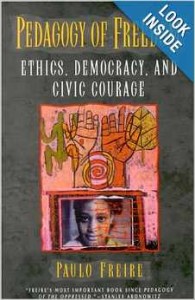 Mixed Feelings–Mix of Brilliance and Gobbly-Gook, March 8, 2008
Mixed Feelings–Mix of Brilliance and Gobbly-Gook, March 8, 2008
Lance H. Gunderson
On balance, Resilience and the Behavior of Large-Scale Systems (Scientific Committee on Problems of the Environment (SCOPE) Series) is the better book but this one is the thicker heavier more math-laden pretender–the problem is they have their own citation cabal, and while the bibliography is much broader and deeper than the above recommended book, there are too many gaps and an excessive reliance on obscure formulas that I have learned over time tend to be smoke for “I don't really know but if I did, this is the formula.
Also published in 2002, also with 20 contributors, this book lost me on the math. As someone who watched political science self-destruct in the 1970's when “comparative statistics” replaced field work, foreign language competency, and actual historical and cultural understanding, and a real-world intelligence professional, I'd listen to these folks, but I would never, ever let them actually manage the totality.
The book is the outcome of a three year effort, the Resilience Network as they called themselves, and there are some definite gems in this book, but it is a rough beginning. Among other things, it tries to model simplicity instead of complexity, and continue to miss the important of true cost transparency as the product and service end-user point of sale level, and real-time science that cannot be manipulated by any one country or organization (Exxon did NOT make $40 billion in profit this year–that is a fraction of the externalized costs, roughly $12 against the future for every $3 paid at the pump–that level of public intelligence in the public interest in missing from this book).
Page 7, “Observation: In every example of crisis and regional development we have studied, both the natural system and the economic components can be explained by a small set of variables and critical processes.” This rang all of my alarm bells. If I did not have total respect for what the authors and funders are trying to do, that sentence alone would have put this book firmly into my idiocy pile.
I just do not see in this book the kind of understanding of the ten high-level threats to humanity interaction with one another, such as can be seen free online or bought via Amazon, A More Secure World: Our Shared Responsibility–Report of the Secretary-General's High-level Panel on Threats, Challenges and Change, nor do these distinguished practitioners of their own little “club” see the strategic coherence of identifying ten core policies from Agriculture to Water that must be harmonized at every budget level, nor the irrelevance of anything we do unless we can persuade the ten demographic challengers with an EarthGame online that delivers real-time science and near-real-time cost-benefit analysis.
I find several of the authors to be a bit too cavalier in their dismissal of the contributions of economists, ecologists, and others.
Theories of change and next cycles are useful. Concepts of cascading change and collapsing panarchies are good. Log number of people in Figure 4.1 is very good.
In discussing adaptive response to change these learned scholars appear to have no clue of what is possible in delivering neighborhood level granularity of data for online social deliberation and models for gaming. There are early light references to deliberative democracy, but right now these folks have models in search of data in search of players. I did like the discussion of the larger model for levels of discourse, but WikiCalc and EarthGame are a decade ahead of this book's contents (which I hasten to add, was started in 1998 and published in 2002).
Table 11-1 on page 310 was so useful I list its row descriptors here, Factors and Adaptation and Possible Effect on Resilience (the latter not replicated here.
Factors:
Biota
Diversity-spacial
Diversity-production strategies
Energy sources
External resources
Mental models
Population structure
Savings
Scale
Technology
This is no where near the 10-12-8 model at Earth Intelligence Network, but I see real value here, and the need for a cross-fertilization. The fatal flaw in this book is that they confuse the failure of expertise with the failure of democracy–if we can achieve electoral reform and eliminate the corruption inherent in most governments, and certainly that of the US government which is broken and “running on empty” while every incumbent sells their constituents out to their party or special interests, it would be possible to connect data, change detection, alternative scenario depiction, and deliberative democracy at the zip code level.
Gilberto Gallopin, Planning for Resilience, is alone worth the price of the book, in combination with above and the closing summary, which is also a real value. My final note: too much gobbly-gook (to which I would add, “and no clue how intelligence-policy-budget connections are made and broken.
The key to eradicating the ten high level threats to humanity, among which environmental degradation is number three after poverty and infectious disease, is not better science–it is better democracy, participatory democracy, combined with moral capitalism. Below are a few titles to help make this point.
These 20 contributors are all part of a future solution, but they cannot be allowed to drive the bus.
See also (apart from my many lists):
Running On Empty: How The Democratic and Republican Parties Are Bankrupting Our Future and What Americans Can Do About It
Breach of Trust: How Washington Turns Outsiders into Insiders
Vice: Dick Cheney and the Hijacking of the American Presidency
The Battle for the Soul of Capitalism
Green to Gold: How Smart Companies Use Environmental Strategy to Innovate, Create Value, and Build Competitive Advantage
The Philosophy of Sustainable Design
The New Craft of Intelligence: Personal, Public, & Political–Citizen's Action Handbook for Fighting Terrorism, Genocide, Disease, Toxic Bombs, & Corruption
Collective Intelligence: Creating a Prosperous World at Peace








